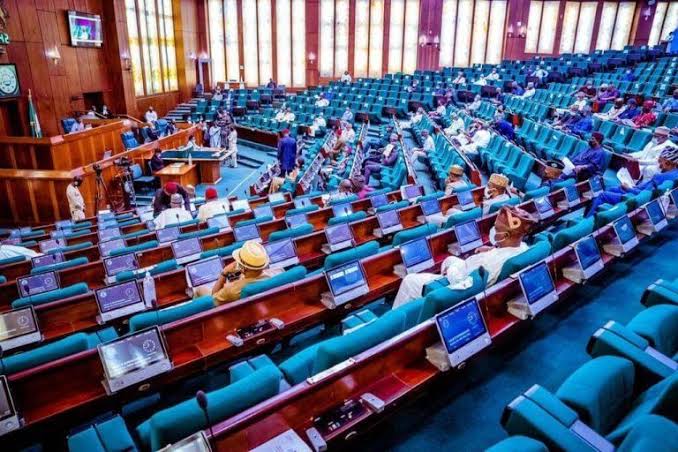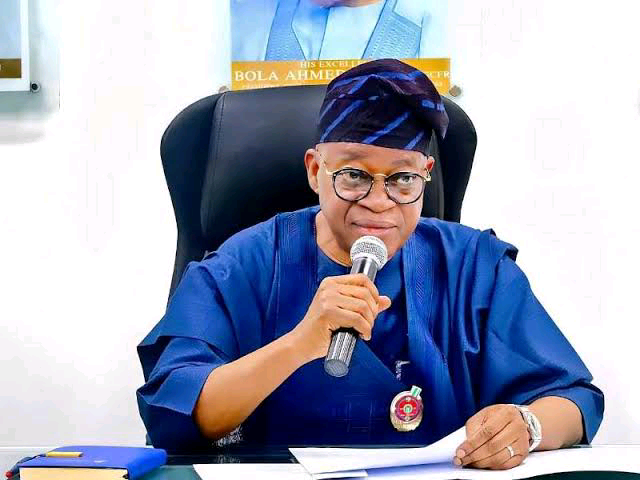Isaac Samuel
The House of Representatives has commenced investigation into the implementation of the $696 million (N1.06 trillion) Nigeria COVID-19 Action Recovery and Economic Stimulus (NG-CARES) programme
NG-CARES, a flagship federal government social intervention programme, was conceived as a social safety net to provide relief for vulnerable Nigerians after the COVID-19 pandemic.
Chairman of the House Committee on NG-CARES, Abubakar Kusada, told journalists that the decision to probe the programme stemmed from growing public discontent.
He noted that despite the federal government meeting its funding commitments, providing operational guidelines, and setting up structures for delivery, millions of Nigerians have yet to feel the intended relief from the palliatives and safety nets under NG-CARES.
Kusada disclosed that the federal government had already released a total of $696 million, an equivalent of N1.06 trillion to the 36 states and the Federal Capital Territory through various delivery platforms.
He lamented that yet, the reality on the ground shows little sign that these funds have brought meaningful assistance to the vulnerable groups they were meant to serve.
“The House Committee on NG-CARES in exercise of its powers under Section 88 and 89 of the Constitution has resolved to commence immediate and full investigation of the NG-CARES programme so as to unravel the disconnect and ascertain the propriety of expenditure of the huge sums provided by government for the administration of social welfare”, he said.
The investigation, he explained, will dig into critical questions that touch on transparency, accountability, and the value delivered by the programme.
Among the issues to be scrutinised are whether the funds were stolen, mismanaged, or diverted to unrelated projects; whether they delivered genuine value for money or were drained by inflated contract costs; and whether the procurement processes could withstand public scrutiny.
The lawmakers also want to know if the safeguards built into the programme including Independent Verification Agents (IVAs) and Third-Party Monitors (TPMs) operated effectively or were compromised.
Another area of focus will be the distribution of funds.
“Was it done fairly? Why did some states receive more than their allocated notional amounts?”, he said.
The committee also plans to examine why operational mechanisms collapsed in some states and how the delivery platforms can be strengthened.
Kusada suggested that nationwide training workshops for NG-CARES operatives may be necessary to boost efficiency and ensure the programme meets its objectives.
The lawmaker expressed concern over states’ claims of billions spent on social transfers, agricultural inputs, labour-intensive agricultural projects, and market infrastructure.
He added: “Several states have claimed billions for social transfer. These beneficiaries are Nigerians that can be reached. If fake names have been used to claim social transfer, we will say so.
“States have collected billions for Agric Inputs and services, for Labour Intensive Agric Infrastructure, for Procurement of Agric Assets, and for Development and Upgrading of Wet Markets and Storage Facilities.
“If we verify these claims we will also disclose the impact they have had on food supply, food prices and the plight of ordinary Nigerians. If we are unable to verify the claims, we will name and shame the affected states, and insist that the right thing be done.
“Similarly, we will verify the grants and other supports purportedly given to MSEs for recovery and economic stimulus. Billions of Naira have been collected by states for these interventions to small businesses which should have facilitated their resilience and survival, contributing substantially to economic well being and prosperity of ordinary Nigerians.
“If the funds have been properly applied to provide social safety nets for vulnerable Nigerians then Nigerians in search of safety net and palliatives can be told where to look to find them.
“If the funds have been diverted the affected states should restore the funds and utilise them properly. If there has been a gross mismanagement of funds the people will know that the funds for Palliatives have been misused, and who to hold responsible.
“If the procurement process has been abused then the BPP and anti graft agencies have their work cut out for them”.





